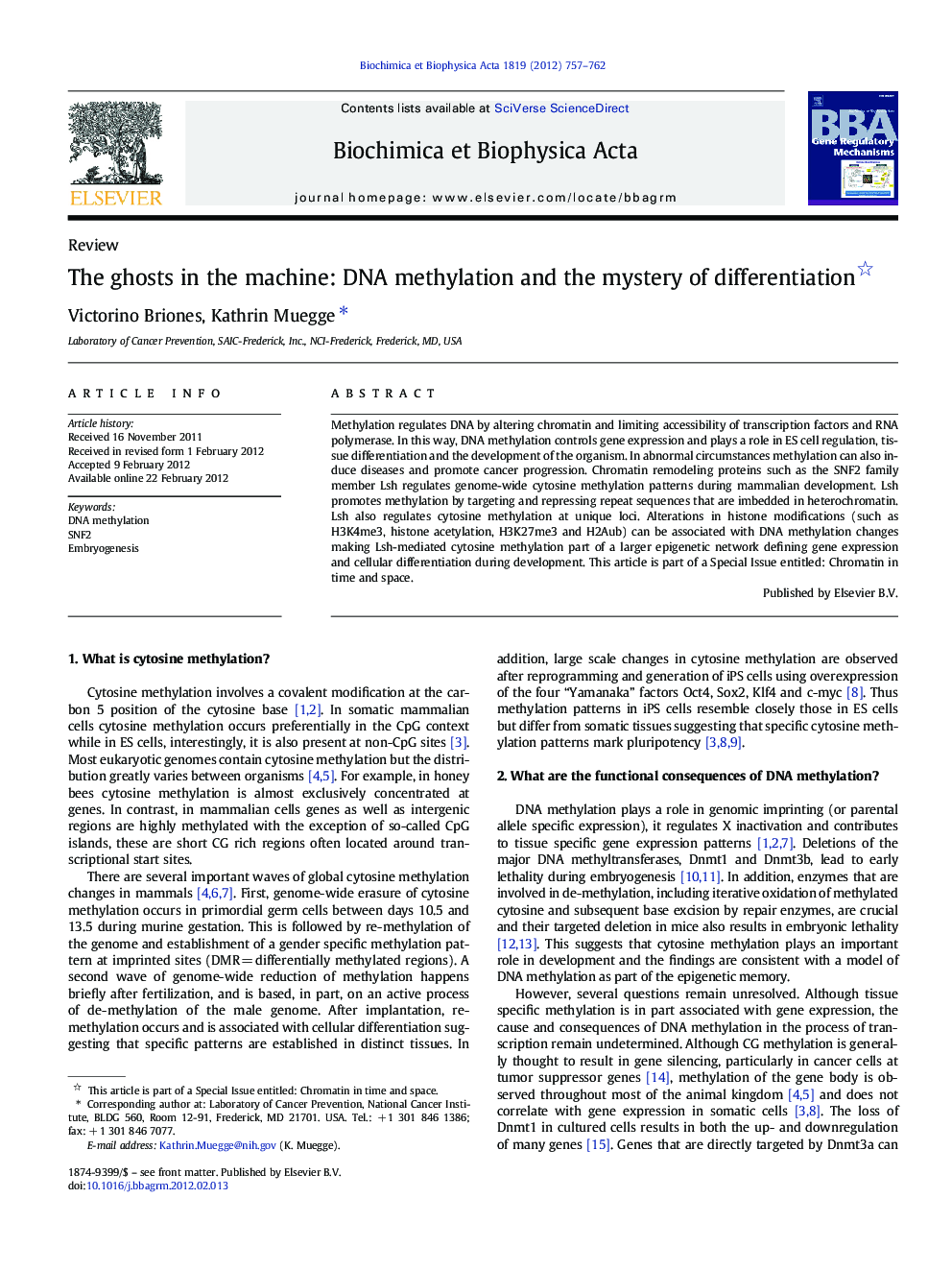| Article ID | Journal | Published Year | Pages | File Type |
|---|---|---|---|---|
| 1946584 | Biochimica et Biophysica Acta (BBA) - Gene Regulatory Mechanisms | 2012 | 6 Pages |
Methylation regulates DNA by altering chromatin and limiting accessibility of transcription factors and RNA polymerase. In this way, DNA methylation controls gene expression and plays a role in ES cell regulation, tissue differentiation and the development of the organism. In abnormal circumstances methylation can also induce diseases and promote cancer progression. Chromatin remodeling proteins such as the SNF2 family member Lsh regulates genome-wide cytosine methylation patterns during mammalian development. Lsh promotes methylation by targeting and repressing repeat sequences that are imbedded in heterochromatin. Lsh also regulates cytosine methylation at unique loci. Alterations in histone modifications (such as H3K4me3, histone acetylation, H3K27me3 and H2Aub) can be associated with DNA methylation changes making Lsh-mediated cytosine methylation part of a larger epigenetic network defining gene expression and cellular differentiation during development. This article is part of a Special Issue entitled: Chromatin in time and space.
► Cytosine methylation pattern are critical for cellular differentiation and development. ► Lsh is a SNF2 homologue that regulates cytosine methylation in mammals. ► Lsh controls DNA methylation and histone modifications at repeat elements and developmental genes. ► Abnormal chromatin organization and aberrant gene expression in the absence of Lsh lead to early lethality. ► The Lsh−/− mouse can serve as a model to investigate the biologic function of cytosine methylation.
